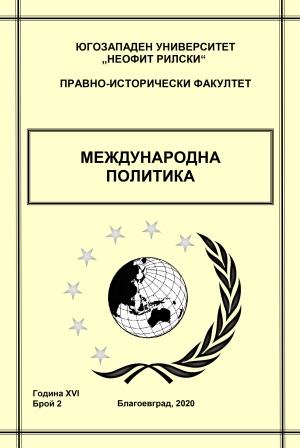Нови медийни компетенции в университетското образование
NEW MEDIA COMPETENCIES IN UNIVERSITY EDUCATION
Author(s): Tereza Trencheva, Evelina ZdravkovaSubject(s): Social Sciences, Education, History of Education
Published by: ЮГОЗАПАДЕН УНИВЕРСИТЕТ »НЕОФИТ РИЛСКИ«
Keywords: Journalism; Electronic and Traditional Media; Intellectual Property; Law; Media Industry; Copyright
Summary/Abstract: The information society of the 21st century accelerates the pace of development of the human intellectual activity. The diversity of platforms through which media content is disseminated, digitazion and digitalisation are changing the media culture of society. The future is oriented towards transcultural thinking, a positive educational environment and effective career development. In the context of interaction between education, economy, innovations, and of particular importance for their successful implementation is the intellectual literacy, in particular copyright and related rights, in a university environment. The investigated issues are becoming more relevant in view of the increased role and importance of the media in the 21st century and the increasingly obsessive tendency for the free use of journalistic materials in the digital space for commercial purposes. The object of the research is the concrete manifestations of the interaction between the creators of media products, their role as authors of knowledge, information and culture for the society and overcoming the digital divide and isolation and the need to be bound by the respect of copyright and related rights. Presentation: The legal rights of authors of creative products in the media are intellectual property rights. So far, no research has been conducted in Bulgaria to establish the copyright competence of students training in the fields of journalism, media, public relations, communications. Observations show that this competence is not at the necessary level, and there is a real need for additional knowledge and training. Existing models and best practices in Europe and in the world are also unknown. At the moment, the curricula of students do not offer training related to copyright literacy in the media. This raises the need to develop training programs to ensure the informational comfort of the authors and the trust for truthfulness among media users. The goal of this paper is to present the research and practical activities, related to the formation of student’s copyright comptency. The scientific research is aimed at the formation of copyright literacy of the students, with which they can gain new knowledge and shared values, improve the quality of education in higher education in the Republic of Bulgaria, study of the media and cultural environment, so it is expected that the research will contribute and in that the state moves to higher places in the ranking of freedom, pluralism and democracy in the media. Methodology: This paper makes a study related to the formation of copyright literacy of students training in the professional field “Social Communications and Information Sciences” at ULSIT and students training in similar specialties in other higher education institutions, examines the educational content offered by higher education and programs that meet this range of knowledge and competencies. The trend is identified through a questionnaire survey, in order to track factual information at the level of awareness of issues related to copyright literacy of learners. Conclusion: Creating conditions for the development of creative thinking and copyright competency in the field of media in a university environment will contribute to a higher competitiveness of learners in the labor market and to the promotion of an active civil society. A dialogue will be launched to build a stable media ecosystem that encourages the enforcement of intellectual property rights in the media industry.
Journal: Международна политика
- Issue Year: XVI/2020
- Issue No: 1-2
- Page Range: 31-45
- Page Count: 15
- Language: Bulgarian

